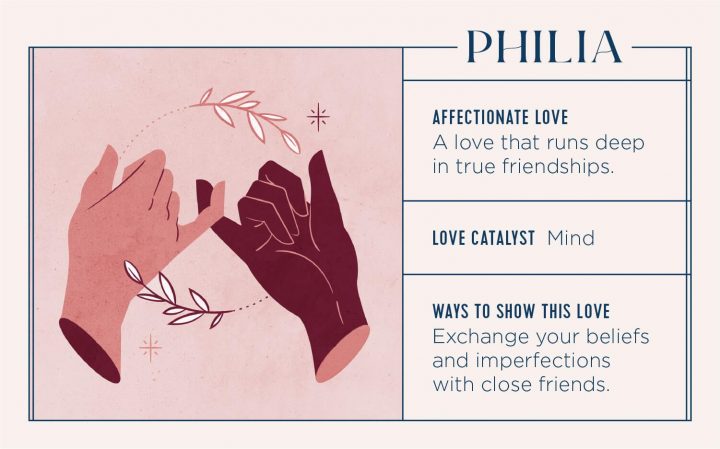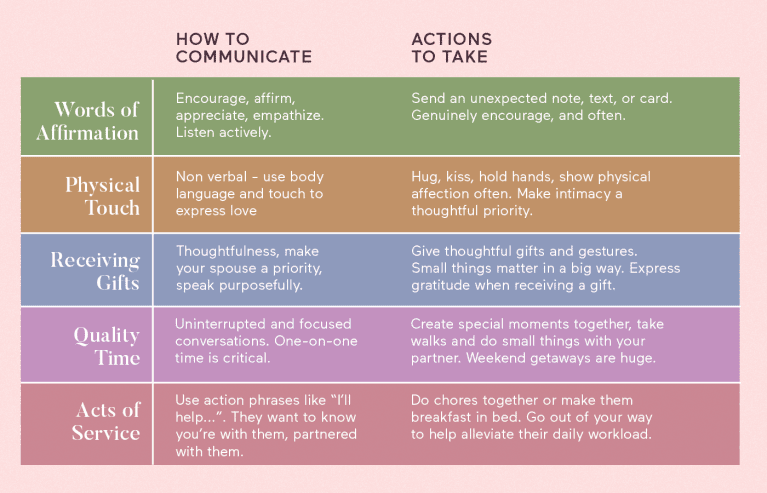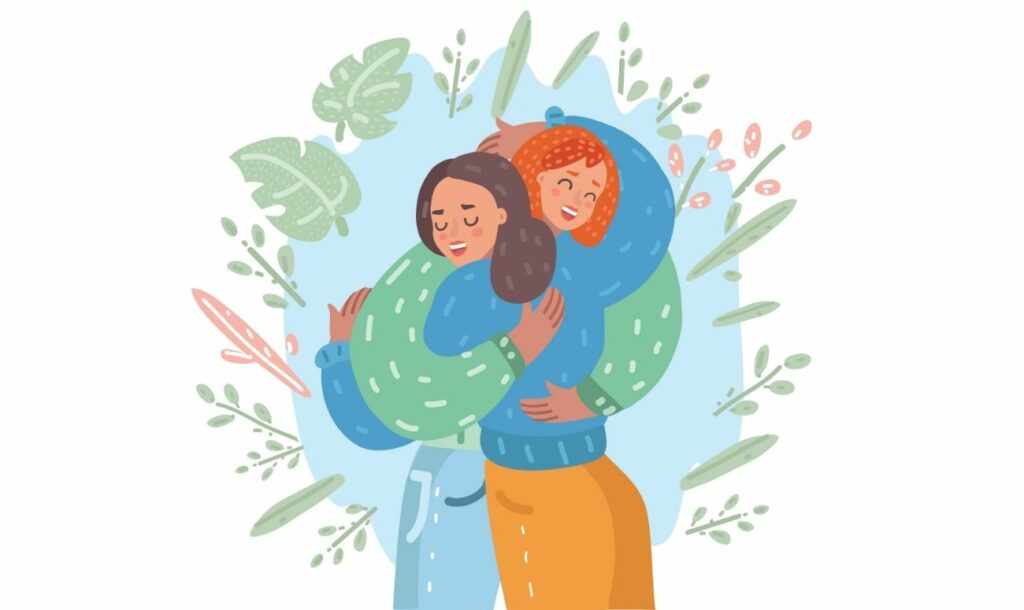There are many types of affection, all of which are important in different ways. When you understand what type of affection you need and give it to your partner, it can help strengthen the bond between you. Relationship experts have studied this topic extensively, and we’ve gathered some of their findings here. Plus, we’ll hear from real couples about how they express affection for each other. So read on to learn more about the different types of affection and find out which one is right for you!
Contents
Understanding Affection

Most of us think of affection as a feeling, but it’s actually much more than that. Affection is any action or gesture that shows care, concern, or admiration for someone. It can be something as small as a pat on the back or a smile, or something more significant like cooking dinner for your partner or taking them on a special date. Whatever the gesture, it should be something that makes your partner feel loved and appreciated.
Affection Vs. Love
Affection and love are often confused with each other, but they’re actually two different things.
- Love is a deep, passionate feeling that comes from the heart. It’s what makes us want to be close to someone and feel safe and secure in their company.
- Affection, on the other hand, is more about actions than feelings. It’s the small things we do to show our partners that we care about them and want to make them happy.
Both love and affection are important in a relationship, but they serve different purposes. Love is the foundation of a strong bond, while affection strengthens it.
Exploring Types of Affection

There are many different types of affection, all of which are important in their own way. Here are some of the most common ones:
Physical Affection: Physical affection is any type of touch, such as hugging, kissing, or holding hands. Physical affection is a great way to show your partner that you love and care for them.
- Example: “I love it when my husband hugs me in the morning. It always makes me feel loved and supported.”
Verbal Affection: This includes any words of encouragement or appreciation, such as telling your partner how much you appreciate them or thanking them for something they’ve done. Verbal affection is a great way to show your partner that you’re thinking of them and that you care about their feelings.
- Example: “My wife always tells me how much she loves me, even when I’m having a bad day. It really makes me feel loved and appreciated.”
Nonverbal Affection: This includes any gesture that shows your partner you care about them, such as cooking for them, doing something special for them, or simply spending time with them. Nonverbal affection is a great way to show your partner that you’re thinking of them and that you want to make them happy.
- Example: “I always try to do little things for my wife to show her how much I care about her. Yesterday, I surprised her with tickets to her favorite play. She was so happy!”
Emotional Affection: This is about sharing your feelings with your partner and being there for them during tough times. It’s about showing them that you understand and care about what they’re going through. Emotional affection is a great way to show your partner that you’re there for them and that you want to support them.
- Example: “My wife knows she can always come to me with her problems. I’ll do whatever I can to help her, even if it’s just listening.”
NOTE: While there are many different types of affection, they can all be boiled down to two main categories: physical and emotional. Both physical and emotional affection is important in a relationship. Physical affection is a great way to show your partner that you love and care for them, while emotional affection is a great way to show your partner that you understand and care about them.
Increasing Affection

If you feel like your relationship is lacking in affection, there are a few things you can do to increase it.
Here are some expert tips:
Make time for each other: One of the best ways to show your partner that you care about them is to make time for them. Schedule regular date nights or simply set aside some time each day to spend together.
Communicate: Talk to your partner about your needs and expectations. If you’re feeling neglected, let them know calmly and assertively. They may not be aware of your feelings and simply need some guidance.
Be present: When you’re with your partner, be present. Put away your phone, turn off the TV, and give them your undivided attention. This will show them that you value their company and that you’re interested in what they have to say.
Express yourself: Affection is about more than just actions. It’s also about expressing your feelings for your partner. Tell them how much you love and appreciate them. Write them a love letter, or simply tell them how you feel when you’re in bed together.
Do something special: Surprise your partner with a gift, take them on a romantic getaway, or make them breakfast in bed. Something as simple as this can show your partner that you care about them and want to make them happy.
Hearing From Relationship Experts
In addition to the advice of experts, it’s also helpful to hear from real-life couples who have been in successful relationships.
Here are some quotes from relationship experts on the importance of affection:
-” Physical touch is one of the most fundamental ways that we communicate love and caring for others .” – Dr. Kory Floyd
-” When we feel loved and supported, our brain activity actually changes in a way that helps reduce stress .” – Dr. Sue Johnson
-” Affection is an important part of a relationship, but it’s often overlooked .” – John Gottman
Brain Activity
The science of affection is a complex and fascinating topic.
Here are some interesting facts about how the brain behaves during bonding:
- The areas of the brain that are responsible for stress and anxiety are actually suppressed when people are in a loving relationship.
- The hormone oxytocin is released when people hug, touch, or kiss. This hormone plays a role in attachment and helps to strengthen the bond between partners.
- Brain activity during bonding is similar to the activity that’s seen in people who use drugs like cocaine or heroin. This is because the brain releases dopamine, which is a feel-good chemical.
Movies And Books
If you’re looking for some examples of affection in movies and books, here are a few:
- In the movie “The Princess Bride,” Westley (played by Cary Elwes) shows his love for Buttercup (played by Robin Wright) by rescuing her from danger.
- In the book “The Fault in Our Stars,” Augustus (played by Ansel Elgort) shows his love for Hazel (played by Shailene Woodley) by taking her on an adventure.
Conclusion
Affection is important in any relationship, whether it be romantic or platonic. It’s a way to show your loved ones that you care about them and want to make them happy. By following the tips above, you can increase the affection in your relationship and create a stronger bond with your loved ones. Thanks for reading!
A Word From Therapy Mantra
Your mental health — Your psychological, emotional, and social well-being — has an impact on every aspect of your life. Positive mental health essentially allows you to effectively deal with life’s everyday challenges.
At TherapyMantra, we have a team of therapists who provide affordable online therapy to assist you with issues such as depression, anxiety, stress, workplace Issues, addiction, relationship, OCD, LGBTQ, and PTSD. You can book a free therapy or download our free Android or iOS app.


